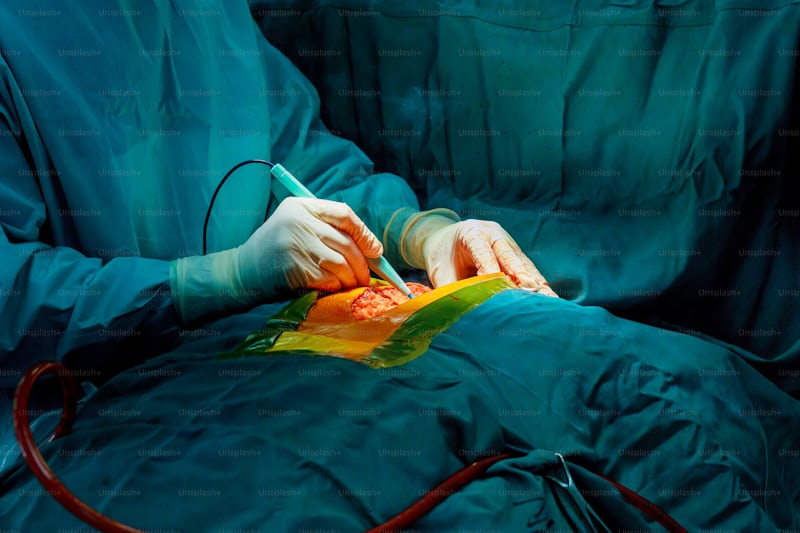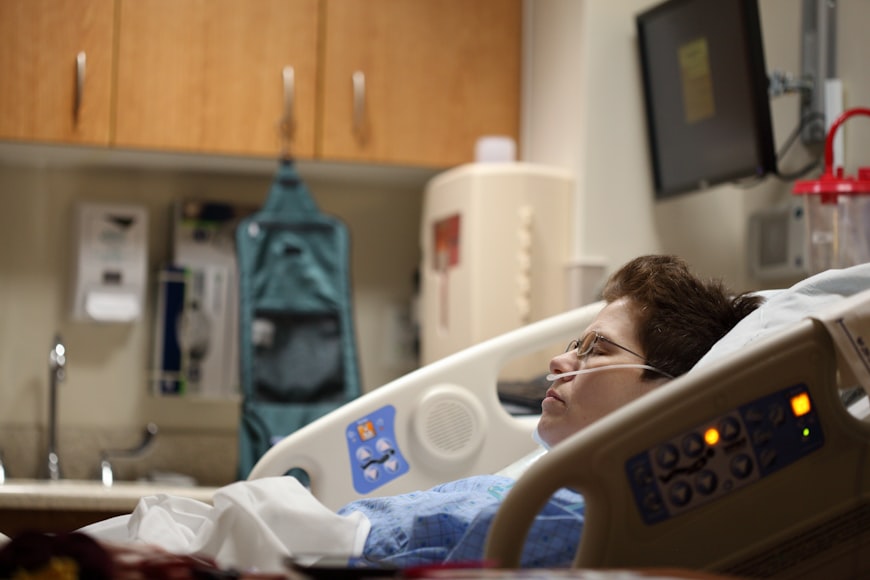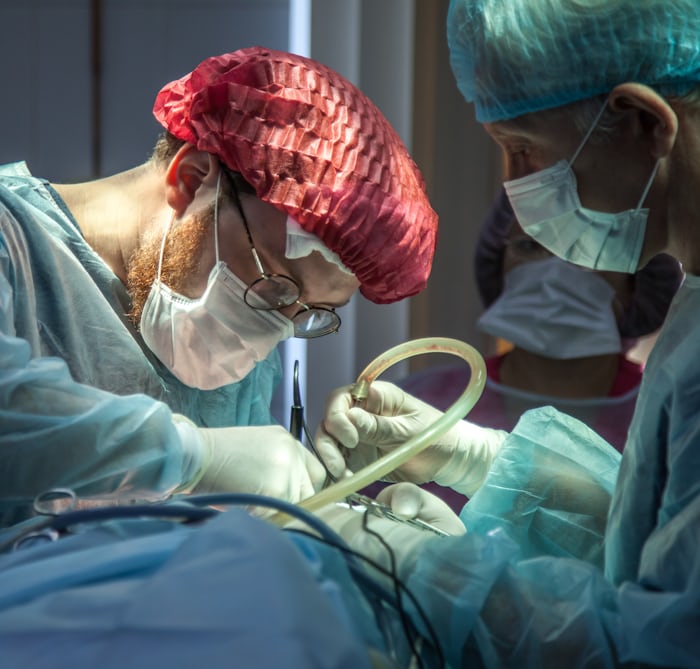“Accidentally ate before surgery” is a common concern that many patients face, causing anxiety and uncertainty about their scheduled procedures. While it’s crucial to follow pre-operative instructions carefully, instances of accidentally eating before surgery do occur. This article aims to address the implications of accidentally eating before surgery and provide guidance on what to do if you find yourself in this situation.

Table of Contents
We’ll explore why fasting is important, the potential risks associated with accidentally eating before surgery, and the steps you should take if you’ve inadvertently consumed food or drinks prior to your procedure. By understanding the consequences and proper course of action when you’ve accidentally ate before surgery, you can make informed decisions and communicate effectively with your healthcare team to ensure the best possible outcome for your upcoming operation.
What happens if you accidentally ate before surgery?
If you accidentally ate before surgery, several important consequences may occur:
1. Postponement or cancellation
The most common outcome is that your surgery may be postponed or canceled. This is done for your safety, as eating before surgery can increase certain risks.
2. Increased aspiration risk
When you’re under anesthesia, your body’s natural reflexes are suppressed. If you have food in your stomach, there’s a risk of regurgitation and aspiration (inhaling stomach contents into your lungs), which can lead to serious complications like pneumonia.
3. Nausea and vomiting
Anesthesia can cause nausea, and having food in your stomach may exacerbate this, leading to vomiting during or after the procedure.
4. Altered anesthesia effectiveness
Food in your system can affect how your body processes anesthesia, potentially making it less effective or requiring dosage adjustments.
5. Longer recovery time
If the surgery proceeds, you might experience a longer recovery time due to the increased risk of complications.
6. Additional pre-operative measures
In some cases, if the surgery is urgent, your medical team might take extra precautions, such as using different anesthesia techniques or inserting a nasogastric tube to empty your stomach.It’s crucial to inform your medical team immediately if you’ve accidentally eaten. They will assess the situation and determine the best course of action based on the type of surgery, how much you ate, and how long before the scheduled procedure you consumed food.Remember, pre-operative fasting guidelines are in place for your safety. Always follow your doctor’s instructions carefully to avoid complications and ensure the best possible surgical outcome.
What happens if you drink water before surgery?
If you drink water before surgery, the consequences can vary depending on the amount consumed and the timing relative to your procedure. Here’s a more detailed look at what can happen:
1. Timing matters
• Clear liquids like water are often allowed up to 2 hours before surgery in many cases.
• However, specific guidelines can vary based on the type of surgery and individual health factors.
2. Small amounts
• If you’ve only had a small sip of water, it may not significantly impact your surgery.
• Your medical team might still proceed if the amount is minimal and enough time has passed.
3. Larger amounts or close to surgery time
• This could lead to postponement or cancellation of the procedure.
• The risks are similar to those of eating, though generally less severe.
4. Aspiration risk
• While water is less problematic than food, there’s still a risk of aspiration under anesthesia.
• This risk is why even water intake is restricted close to surgery time.
5. Altered fluid balance
• Drinking water can affect your body’s fluid balance, which surgeons carefully manage during procedures.
6. Impact on anesthesia
• Water in your stomach can affect how quickly anesthesia takes effect and how it’s metabolized.
7. Emergency situations
• In urgent surgeries, doctors might proceed but take extra precautions.
8. Type of surgery
• Some surgeries, especially those involving the digestive system, may be more affected by water intake than others. It’s crucial to follow your doctor’s specific pre-operative instructions regarding fluid intake. If you accidentally drink water before surgery, inform your medical team immediately. They will assess the situation and determine the safest course of action based on the amount consumed, timing, and nature of your procedure.
Remember, these guidelines are in place for your safety. When in doubt, always consult with your healthcare provider for personalized advice.

What foods interfere with anesthesia?
Certain foods can interfere with anesthesia, which is why it’s crucial to follow fasting guidelines before surgery. If you’ve accidentally ate before surgery, it’s important to understand which foods might pose the most significant risks.
Here’s an overview of foods that can interfere with anesthesia, keeping in mind the concerns if you’ve accidentally ate before surgery:
High-fat foods
These take longer to digest and can increase the risk of aspiration if you’ve accidentally ate before surgery. Examples include:
i)Fried foods
ii)Fatty meats
III)Dairy products
Fiber-rich foods
These can slow down gastric emptying, which is problematic if you’ve accidentally ate before surgery. Examples include:
i)Whole grains
ii)Legumes
iii)Vegetables
3. Garlicky or spicy foods
These can increase stomach acid production, potentially exacerbating issues if you’ve accidentally ate before surgery.
4. Caffeine
Coffee, tea, and energy drinks can interfere with anesthesia effectiveness and should be avoided if you’ve accidentally ate before surgery.
5. Alcohol
This can interact with anesthesia medications and should be strictly avoided before surgery.
6. Grapefruit and grapefruit juice
These can affect how your body metabolizes certain medications, including some anesthetics.
7. Herbal supplements
Some herbs can interact with anesthesia, so it’s crucial to disclose any supplements if you’ve accidentally ate before surgery.
8. Large meals
The quantity of food matters as much as the type. A large meal of any kind can significantly increase risks if you’ve accidentally ate before surgery.
If you’ve accidentally ate before surgery, it’s crucial to inform your medical team immediately, regardless of what you’ve consumed. They will assess the situation based on what and how much you ate, when you ate it, and the specific requirements of your procedure.
Remember, the concern about accidentally eating before surgery isn’t just about food interfering with anesthesia. It’s also about reducing the risk of aspiration and other complications during surgery. Always follow your doctor’s pre-operative instructions carefully to ensure the safest possible surgical experience.
What not to do before surgery?
Don’t eat or drink
Follow your doctor’s fasting instructions strictly. Usually, no food for 8-12 hours before surgery and no liquids for 2-4 hours. This reduces the risk of aspiration during anesthesia.
Don’t smoke
Avoid smoking for at least 24-48 hours before surgery. Smoking can interfere with anesthesia and increase recovery time.
Don’t drink alcohol
Avoid alcohol for at least 24 hours before surgery. Alcohol can interact with anesthesia and affect blood clotting.
Don’t take certain medications
Consult your doctor about which medications to stop or continue. Some blood thinners, herbal supplements, and over-the-counter drugs may need to be discontinued.
Don’t wear makeup or nail polish
These can interfere with monitoring devices during surgery.
Don’t shave the surgical area
Let the medical team handle any necessary hair removal to reduce infection risk.
Don’t bring valuables
Leave jewelry, expensive items, and large amounts of cash at home.
Don’t drive yourself
Arrange for someone to drive you to and from the hospital.
Don’t ignore illness
Inform your doctor if you develop a cold, fever, or any infection before surgery.
Don’t wear contact lenses
Opt for glasses instead, as contacts can cause eye problems during surgery.
Don’t use lotions or perfumes
These can interfere with sterilization and monitoring equipment.
Don’t make major life decisions in a hurry
Avoid signing important documents or making significant decisions right before surgery.
Don’t stay up late
Get a good night’s sleep before surgery to help with recovery.
Don’t forget to follow pre-op instructions
Carefully adhere to all specific instructions provided by your surgical team.
Remember, these are general guidelines. Always follow the specific instructions provided by your healthcare team, as they may vary based on the type of surgery and your individual health conditions.
Conclusion
In conclusion, accidentally eating before surgery is a common concern that can have significant implications for your medical procedure. While it’s crucial to follow pre-operative fasting instructions carefully, mistakes can happen. If you find yourself in this situation, it’s vital to inform your medical team immediately. They will assess the risks and determine the best course of action, which may include rescheduling the surgery or taking additional precautions.Remember, these guidelines are in place for your safety, primarily to reduce the risk of aspiration during anesthesia. While it can be frustrating to delay a planned procedure, it’s always better to err on the side of caution when it comes to surgical safety.
To avoid such situations in the future, carefully review and follow all pre-operative instructions provided by your healthcare team. Set reminders, prepare in advance, and communicate any concerns or questions to your doctor. By being proactive and informed, you can help ensure a smooth and safe surgical experience.
Ultimately, honesty and open communication with your medical team are paramount. Your health and safety are the top priorities, and your healthcare providers are there to guide you through the process, even when unexpected issues arise. With proper preparation and adherence to guidelines, you can approach your surgery with confidence and peace of mind.
Follow On

